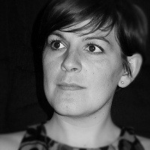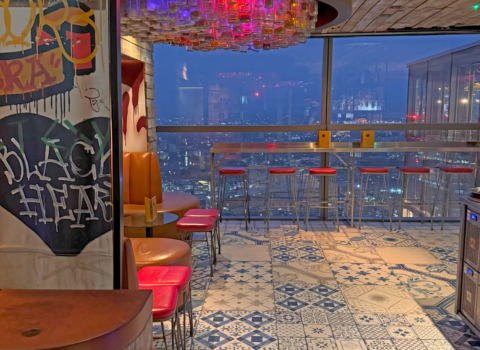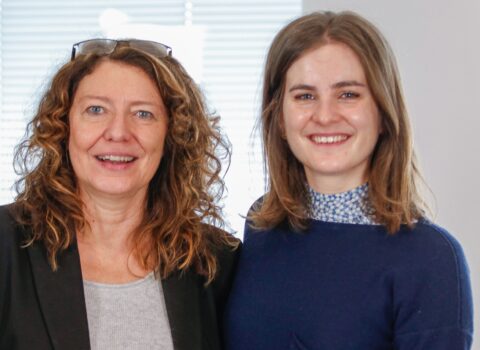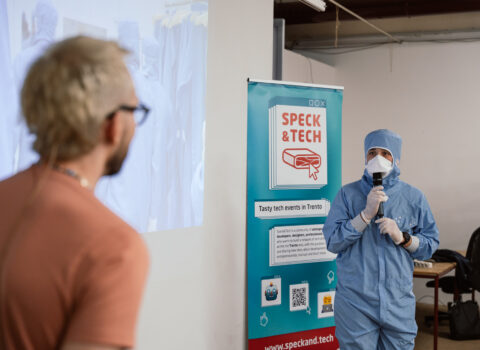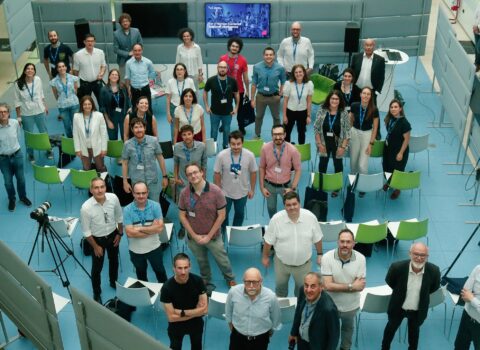
“Think loud, speak science”: the voices of scientific research
At a recent public event, Fondazione Bruno Kessler (FBK) introduced the 24 Science Ambassadors selected to communicate its research to the public and the media. These Ambassadors will take center stage at upcoming events, embodying the values of the Foundation.
They work across a wide range of fields, including sustainable energy, quantum technologies, micro- and nanofabrication, and religious diversity. Their expertise spans all research areas of Fondazione Bruno Kessler, and they are fully equipped to communicate its scientific work and findings to the public. Over the past year, they have completed a dedicated training program focused on storytelling and public speaking. Upon finishing this program, they earned the title of FBK Science Ambassador.
This role offers them the opportunity to actively contribute to the Foundation’s science communication efforts. Through participation in festivals, public events, and outreach projects, they serve as a “loudspeaker” for the wider community—taking science out of the lab and making it accessible and engaging, even for non-specialists. Their mission also involves creating compelling content—articles, videos, podcasts, interviews—that explain complex research topics in a clear, relatable, and inspiring way.
“This project puts into action one of our strategic priorities: enhancing human capital and strengthening the bridge between science and society,” said FBK President Ferruccio Resta. “It’s a path that aligns with our model of putting people at the heart of scientific impact— a path of true quality. ”
To immediately put their new skills into practice, one of the Science Ambassadors gave a series of short, engaging talks during the launch event. These talks captivated the audience, offering personal insights into the motivations behind their research and the backstories of their projects—from historical to technical-scientific perspectives.
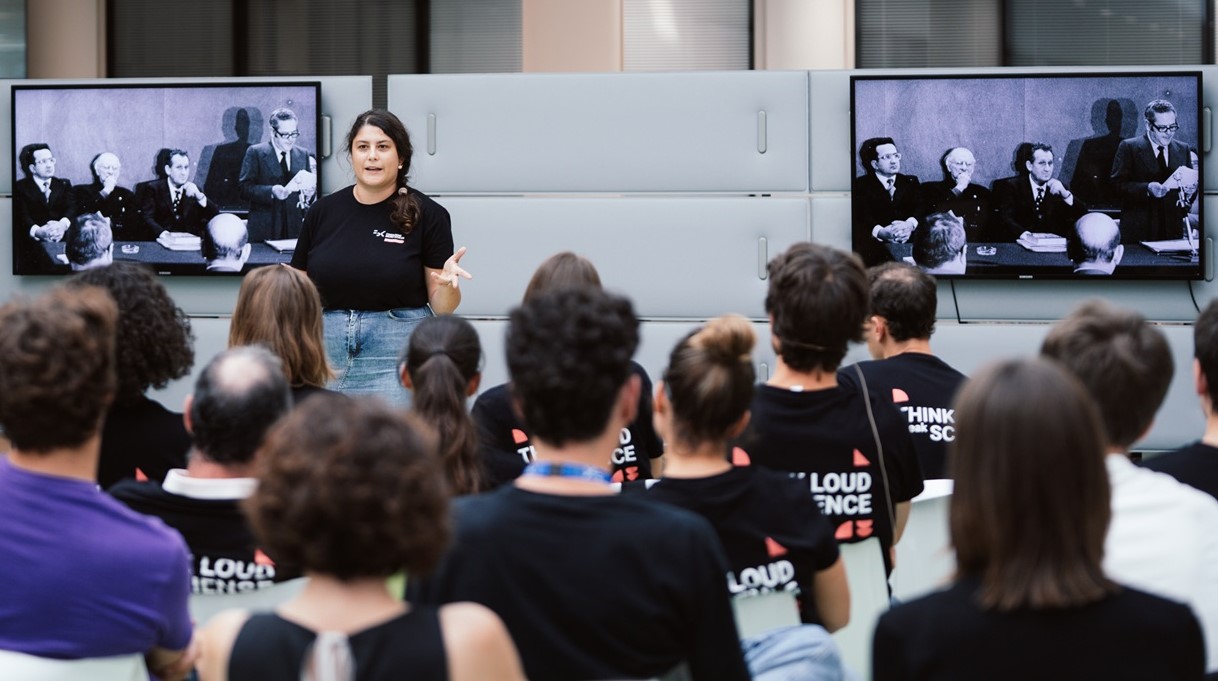
Camilla Tenaglia, a researcher at the Italian-German Historical Institute and Brand Ambassador, opened her talk with a provocative question: “Who was Bruno Kessler?” “That’s what I asked ChatGPT in the spring of 2023,” she said. “And it didn’t know much at the time.” From that moment of curiosity, she launched into a story about the visionary politician from Trentino whose foresight brought applied research in artificial intelligence to Trento as early as the 1980s. “Today, research has done its job—ChatGPT now knows Bruno Kessler’s story. Try it and see for yourself,” she concluded.

Greta Sofia Lampis, from the Institute for Evaluation Research on Public Policies (IRVAPP), and Marco Dianti, from the Center for Digital Health and Wellbeing, shared how their experiences in science communication have led to new insights and even interdisciplinary collaborations. “After our first talks, we learned how to adapt to diverse audiences—handling unexpected questions and receiving thought-provoking ideas,” they said. “These encounters inspired us to explore potential collaborations that combine impact assessment with training in digital health.”
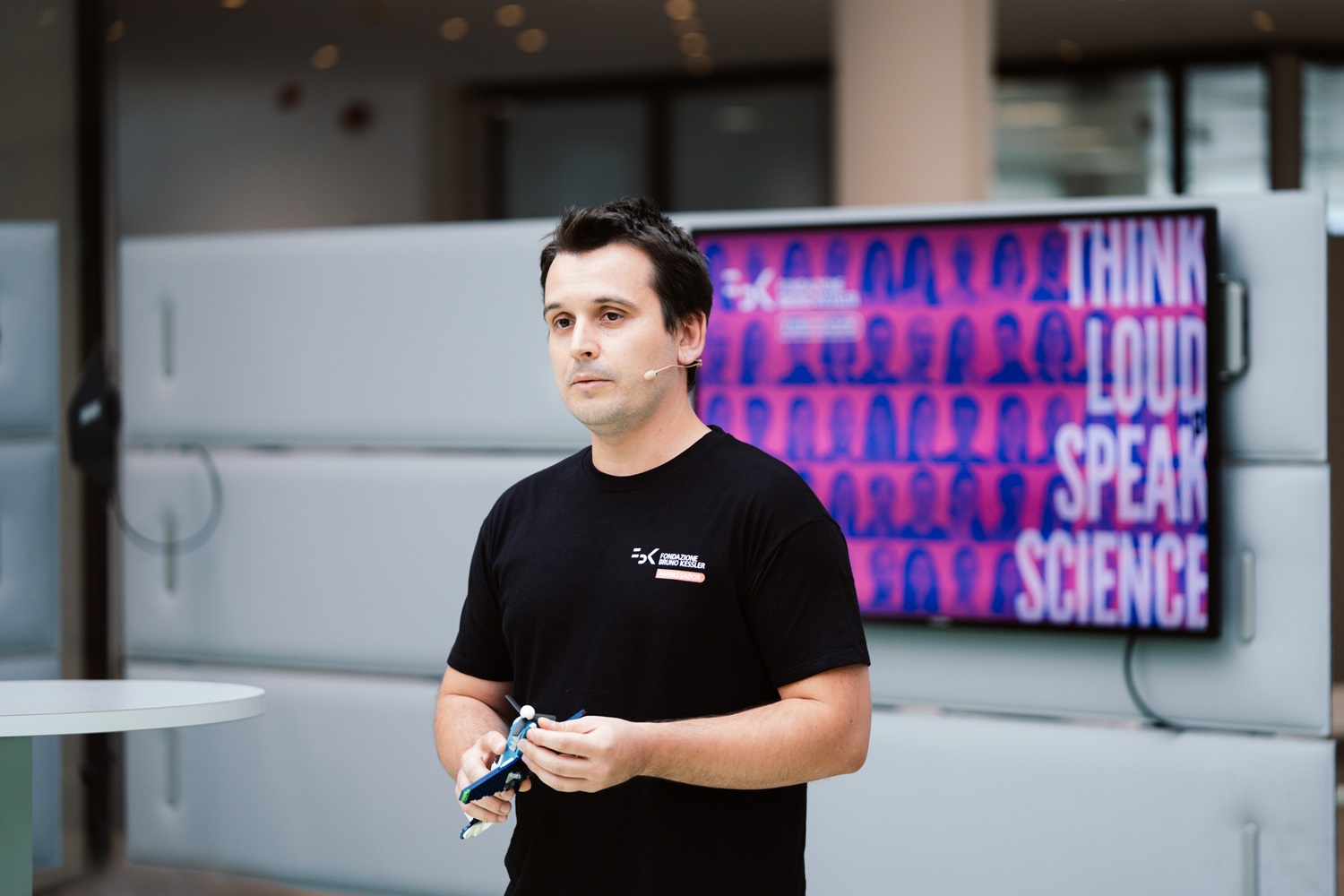
Nicolò Crescini, from the Center for Sensors and Devices and also one of the 24 Ambassadors, offered a creative take with his talk “Understanding Physics, Piece by Piece.” Using LEGO blocks as a metaphor, he explained how physics breaks down reality into its smallest components to understand the fundamental laws of nature. Just like building a castle or a spaceship brick by brick, he invited the audience to observe the world’s symmetries, proportions, and patterns—not as coincidences, but as the very foundations of nature. By deconstructing and reconstructing the world, he illustrated how physics reveals constants and symmetries from which natural laws emerge. Understanding these principles not only explains phenomena—it unlocks new possibilities, from particle accelerators to lasers and quantum computers.
In a time when science, innovation, and research need to be communicated clearly, passionately, and accurately, Fondazione Bruno Kessler has launched a dedicated task force. These Science Ambassadors will be the voices bringing research closer to society—making knowledge truly engaging.

